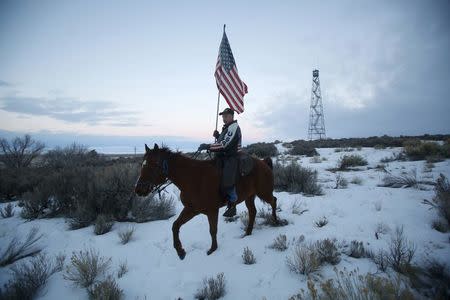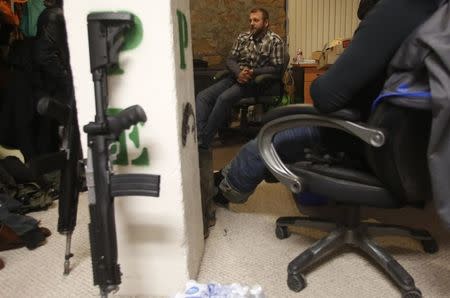Prosecutors in trial of Oregon militants describe armed 'fortress'
By Scott Bransford
PORTLAND, Ore. (Reuters) - Anti-government militants who seized a U.S. wildlife center in Oregon earlier this year turned the refuge into a "fortress" as part of a conspiracy to use armed intimidation to press their political beliefs, a federal prosecutor told jurors on Tuesday.
Assistant U.S. Attorney Ethan Knight summed up the government's case against seven defendants nearing the end of their trial in federal court in Portland for their role in the 41-day takeover of the Malheur National Wildlife Refuge in eastern Oregon.
Closing arguments began after weeks of testimony from prosecution and defense witnesses, some of whom took part in the armed protest that began in January.
The militants' leader, Ammon Bundy, and six others are charged with conspiracy to impede federal officers through intimidation, threats or force, as well as with possession of firearms in a federal facility and theft of government property.
The immediate flashpoint for the takeover was sympathy for the plight of two Oregon ranchers who had just been ordered back to prison to complete unfinished sentences for setting fires that spread to government property.
But testifying in his own defense last week, Bundy said he and his followers were also taking a stand against federal control over millions of acres of public land in the West.
Bundy asserted that the refuge could be legitimately confiscated from the government under an obscure doctrine of property law called "adverse possession," involving the taking of land that is left idle or in need of improvement.
He and other defendants insisted they engaged in peaceful civil disobedience, and that government employees of the refuge were welcome to return to work at the compound during the occupation.
Knight countered in his summation that the militants' actions amounted to an unlawful seizure of federal property by armed force.
“They made a choice based on their personal beliefs to overtake somebody’s workplace,” Knight said. “This idea that a U.S. Fish and Wildlife Service employee could walk through the door and sit down at their desk is not supported by evidence.”
Knight displayed video showing a group of militants firing off weapons as in a military drill during the occupation.
“It is intimidating to have people who don’t like you take over your office,” Knight said. “It is inherently intimidating as well when those people turn your workplace into a firing range.”
Defense lawyers were expected to present closing arguments later in the day.
(Editing by Steve Gorman and Tom Brown)



